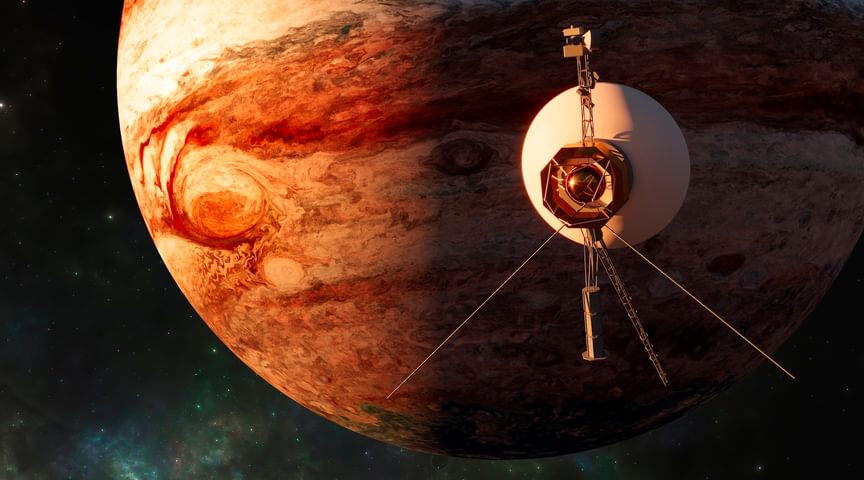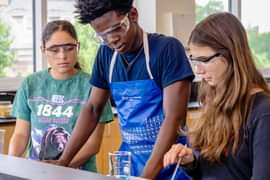
May 17, 2024
Going interstellar
Sarah Sherman ’04 on NASA's groundbreaking tech that will help humankind reach new heights in spaceby By Rita Savard
NASA aims to travel to the moon again—and beyond. Sarah Sherman ’04 has a front row seat.
A mechanical and aerospace engineer at the NASA Jet Propulsion Laboratory, Sherman says a new age of space exploration is beginning, powered by AI, automation, and new space-based industries.
Part of the Mars 2020 team that successfully landed NASA’s Preservation Rover on the Red Planet to collect rock and soil in a hunt for ancient life, Sherman predicts the future of space study will focus on possible habitable environments on Mars, the moons of Jupiter, and in other solar systems.

Q: What does the future look like for space exploration—where are we heading next?
"In October 2024, NASA will launch the Europa Clipper spacecraft to explore Jupiter's icy moon. Its scientific objectives include assessing Europa's habitability and understanding its composition. We've always been keen to understand our universe, but it's not always about discovering or exploring new bodies; it's often about gaining a deeper or more accurate understanding of something as we develop new theories and better instruments. We've had spacecraft looking at Europa since the 1970s, but this mission will investigate it with a suite of nine groundbreaking instruments."
Q: Imagine the year 2040. What do you predict will be the biggest breakthrough in your field?
"I'm hopeful that by 2040, we will have returned samples from Mars. The Perseverance rover has already collected over a dozen samples of rock, gas and regolith, so once the samples are retrieved and opened in special labs here on Earth, I have no doubt we'll be amazed by what we find. I suppose we're all holding out hope that we'll see signs of ancient microbial life, but any new scientific discovery about Mars would be worth it. Since one of my roles was designing the sample tubes, I'd love to revisit my old hardware in a museum in 2040."
Q: As a member of the Mars 2020 Mission Team, you said you were living your dream by having helped build something that lands on Mars. What is your next big dream project?
"I'm really excited about the upcoming VERITAS mission to Venus, with an expected launch year of around 2030. Venus is a unique planet in that it could have been like Earth at one time, but has curiously become highly geologically active and inhospitable to life. I've been following this mission since it was proposed about nine years ago, which shows how long it takes to get these projects off the ground. Often, planetary scientists spend their whole careers championing a particular project, and it's a crowning achievement to see it operate in space. As an engineer, I'm lucky enough to join in for the last five years, and then jump to the next project!"





